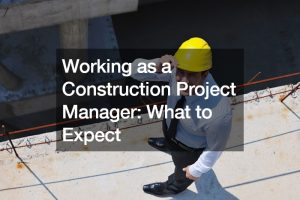People have long held a morbid fascination with the phenomenon of collapse. We marvel at the ruins of Angkor Wat and the pyramids of Egypt. We wonder how those who built such impressive structures could have vanished while secretly fearing if the same fate could befall us.
It’s debatable whether the pandemic can eventually destabilize our economy beyond recovery. But experts agree that we’ll be dealing with the fallout for years to come.
In general, efficient testing instruments for pharmaceutical permeability make it possible to start drug clinical trials early. This translates to faster release of new medicines and potentially effective vaccines.
However, even if we eventually achieve herd immunity to Covid-19, the ruin problem persists. The pandemic had been predictable, a risk born of today’s fragile and highly connected networks, yet ignored. How can we become better prepared for the next one when we’re still reeling from the effects of this latest crisis?
Taking perspective
Collapse is gradual. It unfolds over time. When we look back upon the ruins of ancient civilizations, we’re doing so through the immensely compressed lens of centuries, even millennia, of history.
Collapse isn’t restricted to the distant past. The past century alone offers the Great Depression, the dissolution of the Soviet Union, and economic crises in Argentina and Venezuela as examples.
These recent examples show us that collapse isn’t the end of the world. People continue to live in Argentina and Venezuela. The descendants of those who survived the Depression still live in America. In some cases, as with the former Soviet Union, countries or entities might cease to exist, or they may be revitalized over time.
It certainly isn’t pleasant to live through times of economic instability. But the economy is a dissipative structure. It self-organizes. One way or another, people will survive. The greater concern is how we rebuild and move forward.
A matter of ownership
Times of uncertainty and chaos tend to foster a sense of hopelessness in the general population. Most of us aren’t directly involved in the fight against the coronavirus.
Our leaders’ job is to make effective decisions, our experts to give them the advice they need, and our frontline workers to carry out the necessary tasks. Everyone else needs to carry on as best they can while following health and safety guidelines.
With such a limited role, we feel overwhelmed, powerless to do anything about the current crisis because we’ve lost our sense of agency in the matter.

However, it’s vital to distinguish between actions that address the immediate situation and those that will bear fruit in the long term.
An economic collapse has far-reaching effects that will be felt for many years to come. And the risk factors for this pandemic continue to exist: deficiencies in healthcare systems, gaps in preparedness and response mobilization outside the health sector, poor global coordination.
There are greater risks outside of this domain: sprawling global networks with poor regulation, business supply chains relying exclusively on just-in-time production. Problems such as climate change and inequality interact with the pandemic to worsen its effects.
Fighting to change these issues will take years. For the most part, it’s not even our battle. Today’s children will fight the bulk of it.
Helping the next generation
That might sound overly grim or pessimistic, but you only have to look at Greta Thunberg to realize its truth.
We have known about the environmental crisis for decades. But leading thinkers and policy-makers ignored reports that we were pushing against limits to growth. They chose to peddle “fairytales of eternal economic growth,” according to Thunberg.
It took a well-informed teenage climate activist to speak truth to world leaders, grab the public’s attention, and cast a spotlight on these issues.
Children can wield such power and spearhead such change in the world. We need to raise the next generation to be prepared for this lengthy challenge.
Parents can start by bracing against the impact of a gap year (or two) and ensuring that their child continues to learn, even outside of the traditional classroom.
Family members and friends can invest their time and effort into helping care for kids, thereby easing the financial burden on struggling parents amid these difficult times.
Everyone can contribute to their local communities, educational institutions, and nonprofit organizations to help disadvantaged children.
This way, we can invest in the development of our next generation, preparing them for the task of a post-pandemic reconstruction that will inevitably be part of their lives. And by doing so, we can reclaim our own sense of agency, taking actions that will make a difference in the future.




